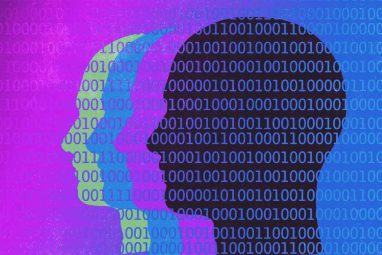Majority of Security Leaders Believe AI Risks Worse Than its Potential Benefits, Finds New Report
A new report states that about 70% of security leaders are planning to reduce their team’s headcount within the next five years due to adopting AI technologies.
Topics
News
- UAE Bets on AI to Transform Smallholder Farming With New Research Institute
- Why OpenAI Is Abandoning Vesting Cliffs in the Race for AI Talent
- UAE’s AI Ambitions Collide With Infrastructure Limits, Kyndryl Report Warns
- India Accelerator Rolls Out $15 Mn Fund for Saudi Market Expansion
- OpenAI Raises the Bar for Enterprise AI with GPT-5.2
- OpenAI Flags ‘High’ Cyber Risk as State AGs Warn Industry Over Harmful Chatbot Outputs

[Image source: Krishna Prasad/MITSMR Middle East]
In many organizations, the Chief Information Security Officer (CISO) primarily focuses on cybersecurity. However, businesses are restructuring roles and responsibilities due to the increasingly sophisticated threats and evolving threat landscape.
Expanding the CISO’s role is at the forefront of those changes. According to Gartner, regulatory pressure and the expansion of attack surfaces will lead to 45% of CISOs’ responsibilities expanding beyond cybersecurity by 2027.
Revealing CISOs’ perception of AI threats, their top priorities, and evolving roles, Bugcrowd’s Inside the Mind of a CISO report found that over 90% believe that AI already performs better than security professionals, or at least will in the near future. AI isn’t only seen as a benefit; over half (58%) believe that the risks of AI are worse than its potential benefits. About 76% believe the AI threat landscape is evolving too rapidly to adequately secure.
Despite plans to hire, 70% reported that they planned to reduce the security team headcount within the next five years due to adopting AI technologies.
The report found one in three respondents (33%) believed that at least half of companies are willing to sacrifice their customers’ long-term privacy or security to save money.
This is partly explained by the fact that 40% believed that less than one in three companies understood their risk of being breached. Speaking of money, nearly nine in ten (87%) reported that they were currently hiring security staff, and 56% stated that their security team was presently understaffed.
CISO Perspectives on Ethical Hacking
Due to concerns about the malicious use of AI by attackers, 70% of security leaders turned towards using crowdsourced security for testing their AI defenses. In fact, more than seven in ten (73%) security leaders view ethical hacking in a favorable light, and 75% have experience with it themselves. With modern-day threats being more evasive and adaptive than ever – 89% believe there are more threats and more serious – it’s imperative that crowdsourced security be the center of an organization’s cybersecurity strategy.
“The CISO role is evolving. Given the current risk landscape and the need to prioritize security over resilience, the CISO has more responsibility than ever before,” said Nick McKenzie, CISO at Bugcrowd. “Bridging the gap between CISOs and the collective ingenuity of hackers is key to shielding organizations from the increasing onslaught of AI threats and attacks.”
As the cybersecurity landscape continues to evolve, professionals and organizations must remain ready to adapt to the latest trends and emerging technologies, such as AI and the implementation of crowdsourced cybersecurity.





